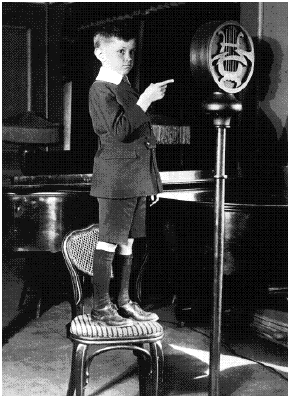The Rise of an
Alternative Network
Matthew Lasar
(Temple University Press)

KPFA was primarily the vision of one man, Lew Hill --- a pacifist from WWII, a man who felt that to end war, one should have a reasoned, Socratic dialogue on the air. Panel discussions, commentaries, criticism, music, political left and political right --- all these flowed together into a whole which would give those of us listeners out there sopping up the information (hungry sponges!) the knowledge we needed for making wise decisions.
Lew Hill in his genius was able to meld together pacifism and Gandhism and Buddhism and social consciousness and workers rights and anti-racism and culture and --- with the result --- build a golden castle of music and ideas: sparkling, alive, filled with wonder and joy. The magic of KPFA was that he was able to create a concept that was stone-pure genius, and make it work --- at least for ten lovely years.
But you know how it is with history's golden towers of joy and reason. After the anarchy of revolution, the Stalins move in with their card files, their humorlessness, their drive, and their bleak rigidity, and drive the gentle people away. After Hill's death in 1957, Pacifica moved into something more akin to what we would now know as "alternative" radio. It became a forum for (essentially) one point of view, which some called "Stalinist," others called "Neo-Marxism," and the rest of us called "BOOR-ing." The wonderful give-and-take of the fifties KPFA yielded to the shallow box-like vision of a woman named Elsa Knight Thompson --- also known as the Wicked Witch of Pacifica --- who appeared on the scene shortly before the death of Hill and who, within five years, with her goon squad of tedious trolls, took over the whole bag of tea.
Lasar's descriptions of her and her years at Pacifica are almost too loving. He lards several pages with encomiums for her (against very few given to Hill) which indicates that he, too, like so many others, was captured by the myth that she was necessary for Pacifica's survival. She wasn't. She and her fellow-travellers used every guile to steal the frequency from the gentle anarchists, utilizing the extended coup, back-stabbing as a high art form, and unyielding bleakness. Under her aegis, the often happy-go-lucky, intellectually galvanizing radio station fell into a Slough of Despond, and became a voice-box of the tendentious left. The best example of what she brought about is to compare interviews of one of the early KPFAers --- Robert Schutz --- with her own.
I once heard Schutz in interview with a Quaker pacifist, and, because of what I knew about Pacifica --- I had been a volunteer for over a year --- it was a startling interview. Schutz imputed the man's loyalty, wondering why he could support non-violence against the likes of Hitler. He asked him that old wheeze --- what would you do if you came upon someone raping your sister: Would you react in a peaceful manner to this violation of one you cared for? With all this, the questions weren't mere demagoguery: they were tart but reasoned. Since I knew I was listening to a station started by pacifists, I was astounded by the generosity of it all. Instead of using the station as their sounding board, KPFA trusted their listeners enough to give us a man bringing into question some of pacifists closest-held beliefs. (It was only later that I found out that Schutz was interviewing his roommate, and one of his best friends).
Contrast this to The Wicked Witch's interview of Paul Robeson, which took place about the same time. For two hours, she turned the radio station over to Robeson. There were no questions that would ever be construed as being hostile. She said he was "an extraodinarily great human being." He said, "I always know I have a welcome here." It was a paean to a brave man, one that we all greatly admired --- but it was as boring as hell. To spend two hours lauding a man we already knew as laudable was not unlike a tribute at a funeral. It was certainly not great radio.
Few defied the Wicked Witch once she got entrenched. In 1964, she was fired by the then station manager, who wrote, according to Lasar:
- Morale, resulting from divisions among the staff, is at the lowest ebb since I have been at KPFA...Consciously or not, you are at the hub of most of the situations which contribute to this situation.
It wasn't until much much later that Larry Lee --- the startlingly effective founder of KPFT in Houston --- managed to get rid of EKT by the clever ruse of tempting her into taking over as acting station manager at Pacifica's station in Los Angeles. Her greed got the better of her: she figured she would have two stations under her belt. Alas, it was not to be so. When she was gone, her job was terminated, and they really did play "The Wicked Witch is Dead" over the air.